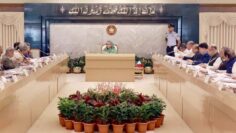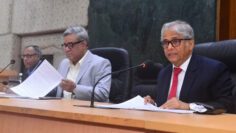ADB approves $250 million loan to Dhaka to finance reforms
Bangladesh has made remarkable progress in reducing poverty over the past 2 decades. The poverty incidence declined from 48.9% in 2000 to 20.5% in 2019.
However, while many people were lifted from extreme poverty, a considerable number continue to live at a subsistence level.
The coronavirus disease (COVID-19) pandemic has significantly affected the socioeconomic situation of Bangladesh with the decline of the country’s gross domestic product to an estimated 5.2 % in fiscal year (FY) 2020 from 8.2% in FY 2019.
“Enhancing social protection support is critical to cushioning the effects of the pandemic,” said ADB Senior Social Sector Specialist for South Asia Hiroko Uchimura-Shiroishi.
He said that the ADB supports the government’s intention to leverage the COVID-19 pandemic as an opportunity to strengthen its social protection programs as an essential means of building the resilience of the poor and supporting an inclusive recovery.
According to the release, the Strengthening Social Resilience Program will include institutional and policy reforms to address cross-sector issues of social development in Bangladesh.
These include improving the coverage and efficiency of the social protection system through improving the administrative efficiency of social protection management.
The program will expand its outreach to vulnerable women by increasing the coverage of both the old age allowance for women over 62 and the allowance for widowed, deserted, and destitute women in 150 sub-district units or upazilas.
Other reforms include promoting the use of mobile financial services and simplifying identification and documentation requirements for opening a bank account and broadening the scope of social protection from mere poverty relief to life cycle social and health responses, including social insurance system.
ADB will also provide a technical assistance grant to support program implementation, policy analyses, and capacity development for social development-related ministries. The technical assistance is estimated to cost $1.2 million which will be financed on a grant basis by the Japan Fund for Poverty Reduction.


















